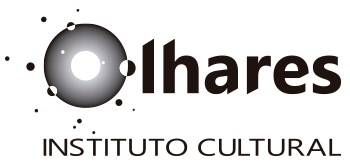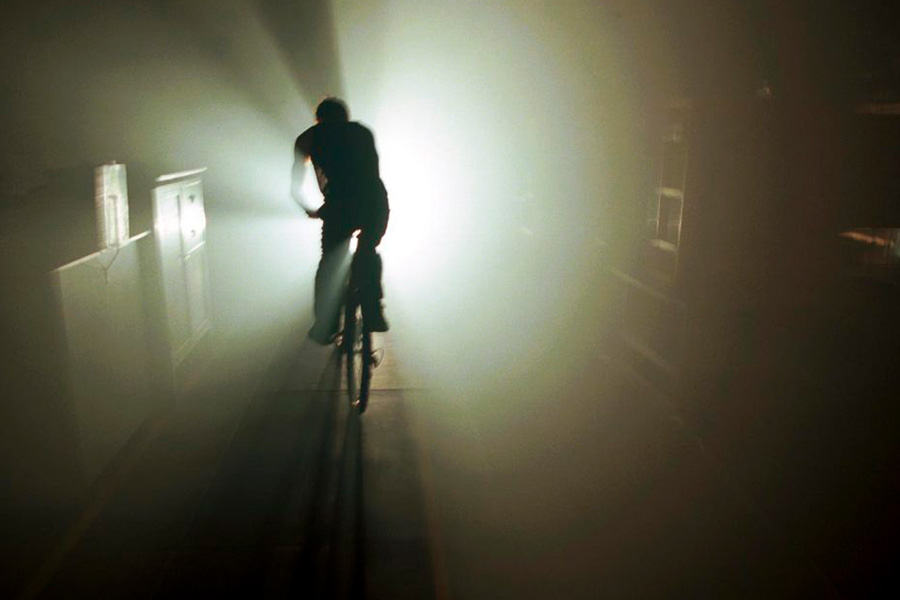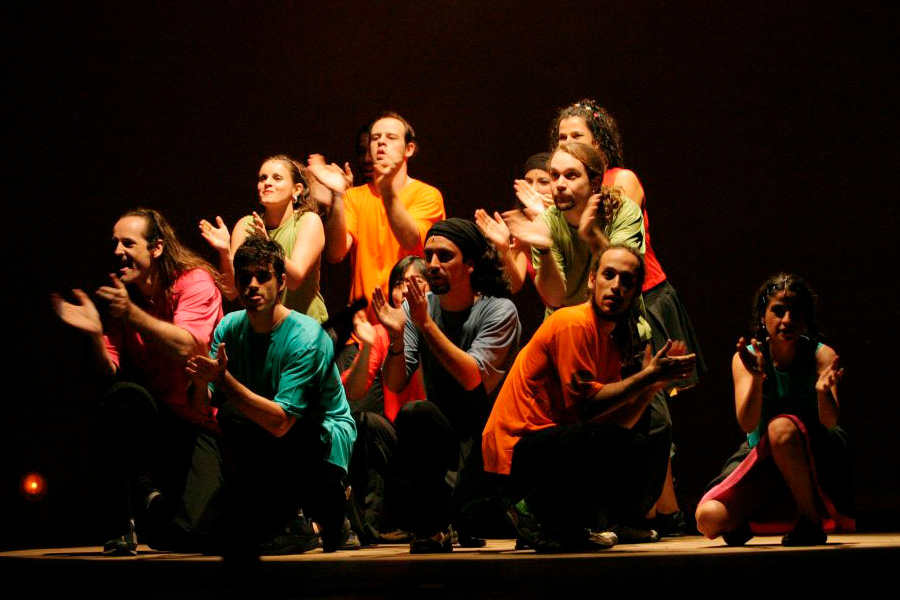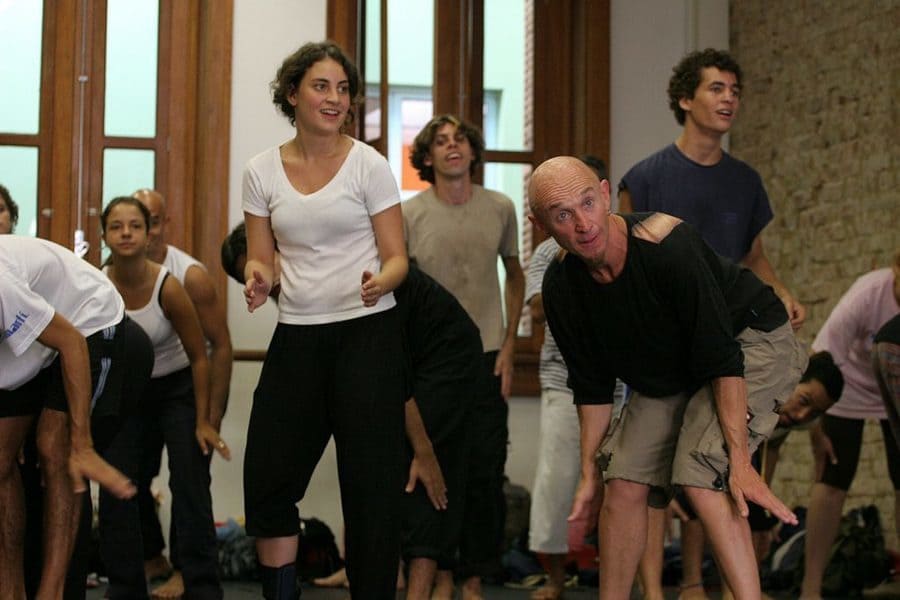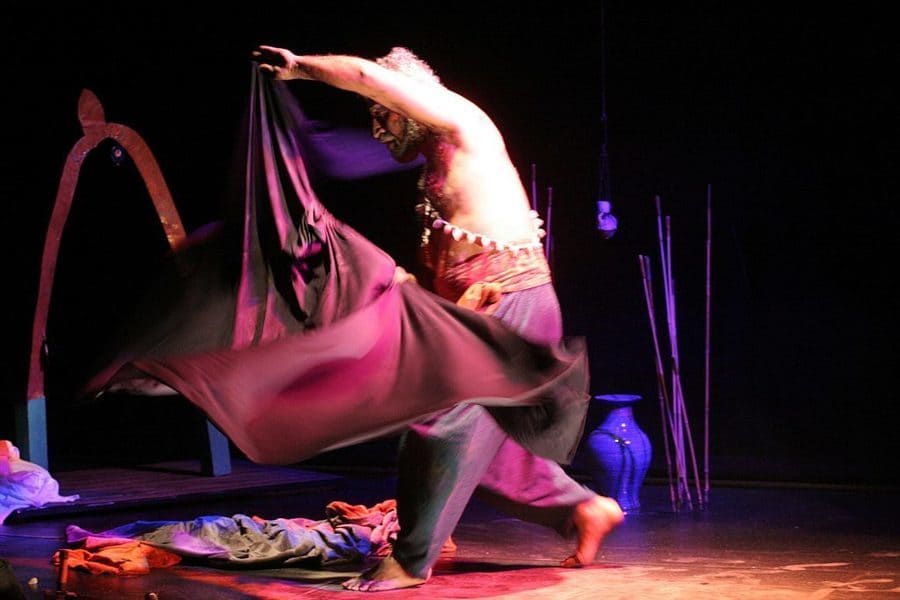ECUM – Performing Arts World Meeting
Internationally recognized as one of the most important forums of knowledge exchange in it’s acting field, the focus of ECUM – Performing Arts World Meeting is the debate of the making of the contemporary performing arts. Throughout the years, the project has left a legacy to the cities where it took place – Belo Horizonte, Rio de Janeiro, São Paulo, among others – improving the performing arts research through the contact with different views and perspectives.
Ever since its first edition, in 1998 at Belo Horizonte, the Performing Arts World Meeting (ECUM Forum) carries as a principle the inseparable relation between the thinking and the creative practice. Other important characteristics are: the statement of diverse viewpoints on the performing arts; and the transdisciplinary, transcultural and international dimension of its doings.
For the past years, the biannual meeting has been the main act of ECUM , through workshops, conferences, exhibitions and performances.
Themes as “Eastern/Western”, “Theatre in Times of War”, “Dialogue with the Future” and “Radical Theatre” are addressed by a cross-sectional point of view and have renewed the spheres of participation in which one could project questions over their own making.
In dialogue with other international centers of creation and with the academic world, the curatorship of all editions has been in the hands of people chosen by their high level of expertise and by their dedication to the transferring of knowledge. Besides the permanent artistic consultancy of Professor Fernando Mencarelli, There have been on the project the following curators: Orlando Arocha, Roberto Bacci, Ana Teixeira, Stephane Brodt, Bya Braga, Carlos Simioni, Antonio Araujo, Maria Thaís, Lia Rodrigues, Christine Greiner and Antonio Nobrega. From this multiplicity, a vast network of exchange has emerged among the participants – curators, artists, students, and theorists.
In all these years, the ECUM Forum has settled in Brazil as an important world center of performing arts, facilitating direct benefits to over 15.000 people connected to the arts. In eight editions, the Forum has had the presence of highly significant international and national names of the performing arts world, such as José Celso Martinez Corrêa (Brazil), João das Neves (Brazil), Lêda Maria Martins (Brazil), Ariane Mnouchkine/Théâtre du Soleil (France), Rustom Barucha (India), Eugênio Barba (Italy), Souleymane Koly (Ivory Coast), Índios Maxakali (Brazil), La Fura dels Baus (Spain), Jacó Guinsburg (SP/Brazil), Workcenter of Jerzy Grotowski and Thomas Richards (Italy), Grupo Nego Fugido (Brazil), among so many others.
ECUM – Knowledge and shared practice; resilience and strength of the theatre craft, which remains alive and powerful, dynamic and challenging, open and unifying, aware that art will always be “a level to reach”. (Antonin Artaud)
ECUM – ECOS – Multiplying power; Country without borders; expansion; network; connections; transdisciplinary; participatory contexture within open workmanship processes, unfolding itself in multiple and potential forms of creation, art, theater.
Years: 1998, 2000, 2002, 2004, 2006, 2008, 2011 and 2013, the last 2 editions made in partnership with Olhares Cultural Institute.
Original idea, execution and production: Olhares Cultural Institute and ECUM Production Center.
Accomplished Editions
ECUM 2011 – Performing Arts World Meeting, 7th edition – from April 10 to May 1.
Main theme: RADICAL THEATER
Lectures, workshops and teaching methodologies:
- Tribute To Yuyachkani – Cultural Group Yuyachkani 40th Birthday;
- Lecture: Miguel Rubio Zapata;
- Theater, Purpose, Action – Meeting Of Thomas Richards With Theater Students And Teachers;
- Work Statement: “Confessions” With Ana Correa;
- Stage Action, “Disassembling Antigona” (Teresa Ralli);
- Shows: (1) “Antígona”, With Teresa Ralli; (2) “Aqueles Dois (Those Two)”, From Cia Luna Lunera; (3) “O Dragão (The Dragon)”, From Cia Amok Teatro; (4) “Esta Noite Mãe Coragem (Tonight Mother Courage)”, By The Zona De Arte Da Periferia- ZAP18;
- Films: (1) “Rosa Cuchillo”, Of Ana Correa; (2) “Divas Y Fantamas – Sobre Una Alfombra Roja (A Reading of El Ultimo Ensayo (The Last Essay) From Yuyachkani”; (3) “Janela Para O Workcenter (A Window To The Workcenter)”, With Thomas Richards;
- Lectures: Works About The Self: Subjectivities And Freedom to investigate Grotowski And Jerzy Grotowski/Thomas Richards’ Workcenter;
- Workshops: (1) Contact. Intention. Impulse – Work On “Acting Propositions”, With Thomas Richards And Mario Bigiani; (2) Body Training – Plastique And Physical Exercises For Actors. “Carving The Energy Of The Space” With Fernando Montes;
- Theory Course: Words In Practice: Read (Or Reread) Grotowski.
Guests: Miguel Rubio Zapata (Peru), Ana Correa (Peru), Teresa Ralli (Peru), Cia Luna Lunera (Brazil), Cia Amok Theatre (Brazil), Thomas Richard (Italy), Mario Biagini (Italy), Teresa Salas (Italy), Philip Salata (Italy), Fernando Montes (Colombia), Tatiana Motta Lima (Brazil).
ECUM 2013 – Performing Arts World Meeting, 8th edition – from September 15 to 21.
Main Theme: TRADITION AND CONTEMPORANEITY: DISSONANCE AND POLYPHONY
Lectures, workshops and teaching methodologies:
- The Search For Contemporary Within Tradition, For Resonance Within Dissonance And For Polyphony Within Cacophony: Critical Thinking And Interventions On The “Here And Now”;
- Sign Of The Times;
- Tradition And Contemporaneity;
- Theatre And Resistance: Waking Roots;
- Poetics Of Dispersion;
- Workshops: (1) Songs From Congado Mineiro (Playing And Enduring Tradition); (2) Maracatu Baque Solto (Playing And Dancing Maracatu); (3) Olharidade (Views); (4) Tambor De Crioula (Black Drums) – Fire Tuned, Played By Beating And Danced With Kicks;
- Workshop: “Social Transformations – The Critical Thinking In Practice”;
- Exhibition: “Transverse”;
- Show: “Shadows In Architecture – Much More Life Severino”.
Guests: Rustom Bharucha (India), Laymert Garcia dos Santos (Brazil), José Eduardo Agualusa (Angola), Kaká Werá (Brazil), Ricardo Aleixo (Brazil), Jorge Antonio dos Santos and Antonio Márcio from the Arturos Community (Brazil) Leda Maria Martins (Brazil), João Paulo and members of the Leão Misterioso de Nazaré da Mata Group (Brazil), Vera Athayde (Brazil), Monílson dos Santos from the Cultural Association Nêgo Fugido (Brazil), Folk and Cultural Association Tambor de Crioula of São Benedito’s union (Brazil), Marco Aurélio Haikel (Brazil), Cia Quase Cinema (Brazil).
